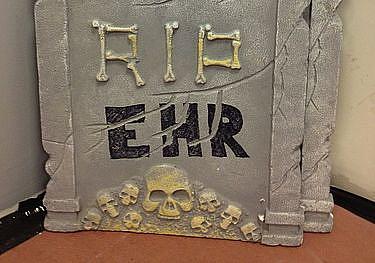Vulcan Medicine: Why the Language of Medical Records Should be Universal

I clicked on the link expecting an anti-outsourcing rant.
The tweet said, “English is the second language of medical documentation.”
It linked to a piece by Dr. Yul Ejnes from the American College of Physicians on KevinMD. Ejnes wasn’t complaining about the fact that medical transcription and medical record tasks are often performed in low-wage countries. He was complaining about the inflexibility of the terminology that he and other doctors have been asked to use when documenting a patient’s history, treatments, and recommendations for next steps.
Ejnes wrote:
English is the international language of medicine, according to many. Regardless of whether that is true, what is becoming increasingly clear is that English is the second language of medical documentation. For those of you who blame EHRs for this, the replacement of English by something else started in the pre-EHR era, but EHRs certainly accelerated it. …
How and why did this happen? Most of it stems from the morphing of the medical record from a clinical tool to an audit and billing tool. The focus is no longer on capturing the patient’s history, examination, test results, and the physician’s thought process. Instead, today’s goal is to record as many things that were said or done as one can in order to justify the highest billing code, meet the performance measure, earn a high quality score, and lawyer-proof the record – and to do so in as little time as possible.
Ejnes suggests a few terms for the new documentation language – “Templatish? Beancounterese? Complyian? Rushian?”
I would call it Vulcan. (That’s the language that Spock speaks in the Star Trek series, and this is my shout out to all the Trekkies in my family.) In other words, it’s logical. Medical professionals come from varying backgrounds with varying types of expertise. Twenty years ago, two doctors in the same hospital might describe a patient’s condition and treatment plan in entirely different ways, leading to very different outcomes – even if fundamentally the two shared a common goal. Formalizing a common way of communicating about life-and-death matters just makes sense.
Ejnes uses EHR without explaining what it is because the acronym has become synonymous with EVIL to some in medical circles. It means Electronic Health Record. As anyone who has seen a doctor recently knows, we don’t yet live in a world where Electronic Health Records are perfectly gathered, adequately integrated or put to their best use.
But we’re getting there. And the stilted, one-size-fits-all language that Ejnes laments is one part of the path. He wrote:
A progress note, whether for an office or a hospital visit, used to tell a story: what the patient said, what the examination showed, what the doctor thought was going on, and what the plan was to make the diagnosis or treat the problem, all of it written to help the physician take care of the patient and communicate with other physicians taking care of the patient. Today it is all about cataloging everything that was asked, everything that was examined, everything that was considered, and everything that was ordered (plus how long the visit was and how much of the time was spent on education and counseling). The goals are to code at as high a level of service as possible and meet the requirements of the “initiative du jour,” in a way that makes it as easy as possible for a non-physician reviewer to check off boxes.
I don’t want to take on the social media juggernaut that is KevinMD, but I do want to put in a small defense of Templatish. Meeting performance measures, earning high quality scores and, yes, lawyer-proofing all can have benefits for patients. Again, the systems are still in their adolescence – if not infancy – and need time to be more fully developed. Ejnes can speak in whatever language he chooses when consulting with a patient or working on a treatment plan with his team. But when it comes to documenting that work, a common language makes as much sense as having the same basic toolkit of surgical instruments in the operating room.
I will write about the downstream effects of good medical documentation in a series of posts.
Have your own ideas about what language we should be speaking in the halls of health care? Send me a note at askantidote@gmail.com or via Twitter @wheisel.
Image by Juhan Sonin via Flickr

